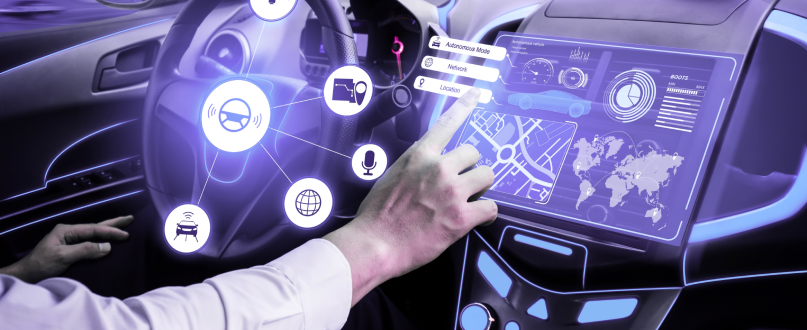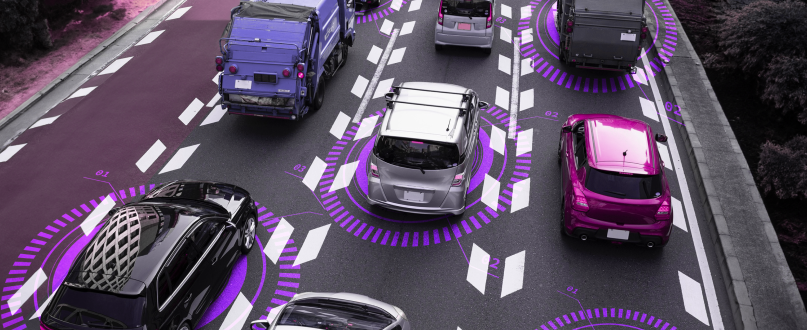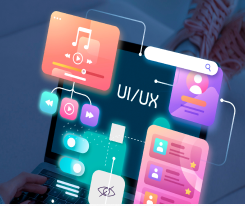In the ever-evolving landscape of the automotive industry, the integration of the Internet of Things (IoT) is not just a trend; it's a revolution. With the surge in connected devices and the increasing demand for efficiency and safety, IoT stands at the forefront of automotive innovation. This blog explores the multifaceted benefits of IoT in the automotive sector and how it's reshaping the industry's future.
Benefits of Using IoT in the Automotive Industry
1. Predictive Maintenance
IoT enables predictive maintenance in vehicles by continuously monitoring and analyzing vehicle data. This proactive approach helps in identifying potential issues before they become serious problems, reducing downtime and saving costs associated with vehicle repairs.
2. Connected Vehicles
IoT facilitates vehicle-to-everything (V2X) communication, enhancing the driving experience. This connectivity leads to improved road safety, optimized traffic management, and a new level of convenience for drivers.
3. Smart Infrastructure
For businesses managing fleets, IoT provides real-time data on vehicle location, fuel consumption, and driver behavior, optimizing fleet operations and improving safety
4. Fleet Management
For businesses managing fleets, IoT provides real-time data on vehicle location, fuel consumption, and driver behavior, optimizing fleet operations and improving safety.
5. Clear Picture of the Manufacturing Floor
IoT technology in manufacturing plants offers real-time monitoring of equipment, inventory management, and quality control, leading to increased productivity and reduced operational costs.
6. Remote Access to Vehicle Information
Owners can access vehicle diagnostics, control certain aspects remotely, and receive alerts about their vehicle's condition, enhancing convenience and security.
7. Real-Time Vehicle Telematics:
IoT devices in vehicles gather and transmit real-time data on vehicle performance, driver behavior, and environmental conditions, paving the way for enhanced vehicle analytics.

How IoT Advances the Automotive Industry?
1. Improving User Experience and Customization
IoT technologies allow for a more customized and interactive user experience. Vehicles can now adapt to individual driver preferences for seating positions, climate control, and entertainment systems. IoT also enables voice-activated controls and seamless integration with personal devices, enhancing in-vehicle experience.
2. Streamlining Manufacturing and Supply Chain
In the automotive manufacturing sector, IoT technologies have revolutionized production lines. IoT sensors can track parts and assemblies through the manufacturing process, ensuring quality control and reducing waste. Additionally, IoT aids in predictive maintenance of machinery, minimizing downtime in production.
3. Data-Driven Decision Making
The automotive industry, with IoT, can leverage big data analytics for informed decision-making. Insights gathered from vehicle data help in understanding market trends, customer preferences, and potential areas for innovation and improvement.
4. Boosting Connectivity and Services
IoT has transformed vehicles into connected hubs that can communicate with other vehicles, infrastructure, and even pedestrian devices. This connectivity extends to offering a range of services like real-time traffic updates, emergency assistance, parking solutions, and location-based services.
5. Integration with 5G and Edge Computing
The advent of 5G and edge computing technologies will further advance IoT in the automotive industry. These technologies will enhance vehicle-to-everything communication, reduce latency in data transmission, and enable more efficient and faster processing of data, essential for autonomous driving and real-time applications.
Real Examples of Automotive Companies Using IoT-Based Solutions



1. Tesla
Advanced Battery Management
Tesla's IoT capabilities extend to sophisticated battery management systems. These systems optimize battery life and performance, adapting to driving patterns and environmental conditions.
Energy Management
Tesla's integration with home energy systems allows for smart charging schedules, aligning with energy tariffs and household energy consumption, showcasing how IoT transcends beyond the vehicle itself
2. Ford
Health and Wellness Insights
Ford is exploring IoT to monitor health and wellness indicators within the vehicle. This includes monitoring air quality and driver health metrics, potentially alerting drivers to health risks or poor environmental conditions.
Integration with Smart Devices
Ford vehicles can connect with smart home devices, allowing drivers to control home lighting, temperature, and security systems remotely from their vehicle, enhancing the IoT ecosystem.
3. BMW
Remote Services and Digital Key
BMW offers advanced remote services, including the ability to lock/unlock doors and check vehicle status through a smartphone app, enhancing convenience and security. BMW's Digital Key allows drivers to use their smartphones as a key, with sharing features for family and friends.
Intelligent Personal Assistant
BMW's Intelligent Personal Assistant uses IoT and AI to learn and adapt to the driver's preferences, providing personalized driving assistance, including suggestions for driving modes, infotainment, and comfort settings.
Future of Automotive IoT and Beyond
1. Autonomous Vehicle Proliferation
The future may see a significant increase in fully autonomous, self-driving vehicles. These vehicles, equipped with IoT sensors, will be able to communicate with each other, with road infrastructure, and even with pedestrian devices, enhancing road safety and traffic efficiency.
2. Advanced Predictive Analytics
IoT will enable more sophisticated predictive analytics for vehicle maintenance. Using vast data sets collected from various sensors, AI algorithms will predict mechanical failures before they occur, schedule maintenance appointments, and even order replacement parts automatically.
3. Integration with Smart Cities
Vehicles will be seamlessly integrated into smart city ecosystems, communicating with traffic signals, parking lots, and charging stations to optimize traffic flow, reduce congestion, and improve energy efficiency.
4. Personalized User Experience
IoT will allow for a highly personalized driving experience. Based on driver behavior and preferences, the car could adjust settings automatically, such as seat position, temperature, and even suggest routes and destinations.
5. Vehicle-to-Grid (V2G) Technologies
Electric vehicles (EVs) will not only be charged via the grid but can also return energy to it. During peak demand, EVs could supply stored energy back to the grid, aiding in energy balance and sustainability.

6. Enhanced Road Safety
With IoT sensors and machine learning, cars will be able to detect and react to potential hazards more effectively, reducing accidents. Features like advanced collision avoidance systems and pedestrian detection will become more refined and widespread.
7. Blockchain for Automotive Security
IoT in conjunction with blockchain technology could offer new levels of security for connected vehicles, preventing unauthorized data breaches and ensuring the integrity of vehicle communications.
8. IoT in Manufacturing and Supply Chain
Enhanced IoT integration in manufacturing processes will lead to even more efficient production lines. This includes real-time tracking of parts, automated inventory management, and AI-driven quality control.
9. Insurance Telematics
Usage-based insurance models will become more prevalent, with premiums calculated based on actual vehicle usage patterns and driving behavior, gathered through IoT devices.
10. Environment Monitoring
Vehicles will be equipped with sensors to monitor environmental conditions like air quality, contributing valuable data for environmental monitoring and urban planning.
How Flyers Soft Can Help in Leveraging Automotive IoT
Flyers Soft stands at the vanguard of this IoT revolution. With our expertise in IoT technologies and deep understanding of the automotive sector, we offer tailor-made solutions that empower businesses to leverage the full potential of automotive IoT. From customized IoT applications to comprehensive data analytics, Flyers Soft is your partner in navigating the IoT-driven automotive landscape.
Conclusion
As we stand at the cusp of a new era in the automotive industry, the integration of IoT is not just an enhancement; it's a necessity. From predictive maintenance to smart infrastructure and beyond, IoT is redefining the automotive realm. With companies like Flyers Soft facilitating this transition, the journey towards an IoT-integrated automotive future is not just a vision; it's a reality being shaped today.




